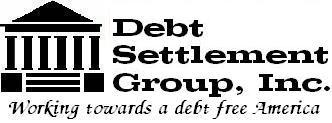Consequence of filing for Bankruptcy
Consequence of Filing for Bankruptcy
Bankruptcy is an option for thousands of Americans to deal with debt. For many, it is the best choice in dealing with credit card debt and medical bills, as well as other debts. However, it may not be the best debt solution in all cases as the debtor did not fully understand the consequences of filing for bankruptcy or that there were alternatives to filing bankruptcy.
What is Bankruptcy?
Bankruptcy is a legally declared inability or impairment of ability of an individual to pay their creditors. It helps individuals repay their debts under the protection of the bankruptcy court or wipe out their debts altogether. People who follow the bankruptcy rules receive a discharge — a court order saying they don’t have to repay certain debts.
Personal bankruptcy is generally considered the debt management option of last resort.
It is best to speak with an attorney regarding bankruptcy options and how it may apply to your situation.
Consequence of filing for Bankruptcy
Filing for a bankruptcy has serious consequences and should not be entered into lightly as its effects are long-lasting and far-reaching. A bankruptcy stays on your credit report for 10 years, and can make it difficult
to apply for future credit, buy a home, get life insurance, purchase a vehicle, etc. Additionally, most people don’t realize that it will stay on your court records for 20 years.
For the rest of your life, any time you apply for a job, loan, or various types of insurance, your bankruptcy may have a negative effect on your eligibility. Although bankruptcy may offer a fresh start for individuals who have no other options, it should only be used after a careful consideration of your options.
Many people choose to avoid bankruptcy and find bankruptcy alternatives.
*Nothing on this page or website should be considered legal advice. Please consult a Bankruptcy Attorney for complete details.
How to Avoid Bankruptcy
Many people think of bankruptcy as the easy way out of debt, and for some it is, but there are severe consequences for filing bankruptcy. If you are considering declaring bankruptcy, remember that your credit history will be negatively impacted for the next years, which can make it difficult to apply for new credit, get a job, or obtain some types of insurance. In some cases, filing for bankruptcy will not allow you to eliminate all your debts—but you’re still left with the financial consequences. You end up dealing with all of the negative aspects of bankruptcy without benefiting from any of the positives. Many people really want to avoid bankruptcy.
In our experience we have seen 2 main types of Bankruptcy: Chapter 7 and Chapter 13. Chapter 7 wipes out your debt, 13 is a discounted repayment plan.
If you have committed to go ahead with Bankruptcy, a chapter 7 may be best. However, sometimes you can’t qualify for a 7 if you own a home or make too much money and you may be forced into a 13.
We have been asked, why would someone want a 13 and all the negative effects of a Bankruptcy when you could use a Debt Settlement program?
Some things to consider on whether or not you can avoid bankruptcy:
• Above Average Wage – If you earn more than the average wage, you may be required to file for Chapter 13 Bankruptcy, which will require you to hand over all of your disposable income. You will only be allowed to keep enough money to pay for necessities as based on national and county statistics. So if you have a nicer than average car or home, you may be required by the courts to sell your house or car in order to free up money to repay creditors.
• Strict Repayment Schedules – Courts also tend to be very strict on their repayment schedules. If you miss payments the court can force you to repay all of the debt. There are many reasons why a program may not be completed, but regardless of whether you complete the program, the bankruptcy remains on your credit report for 10 years.
• Loss of Assets – The court may force you to sell some of your assets in order to make larger repayments against your outstanding debts. This means that you might be forced to sell your home or car in order to pay off debts if you declare bankruptcy.
• Fraudulence – If a creditor can prove to the courts that you had no intention of meeting your agreed upon payments you face yet another problem in bankruptcy. If a lender can show that your case was fraudulent, you will have to repay the entire debt and still end up with a bankruptcy on your account.
If you are an above average wage earner, own property or a car, or it can be proven that you have fraudulently missed payments bankruptcy may not provide you with the fresh start you are looking for.
If you are looking to avoid bankruptcy, you should speak with a debt counselor on options to avoiding bankruptcy. Their consultation is usually free and will help you see both sides of the fence so you can make a more educated decision.
Alternatives to Bankruptcy
If you are truly serious about paying your debts as quickly and efficiently as possible, you may want to consider alternatives to filing bankruptcy such as a debt settlement program. Debt Settlement Group provides a debt settlement service that will negotiate with your creditors to settle your debt.
For a free, 10 minute confidential consultation on debt relief options and how you may be able to find an alternative to bankruptcy, call Debt Settlement Group toll free at 1-855-295-5097.







